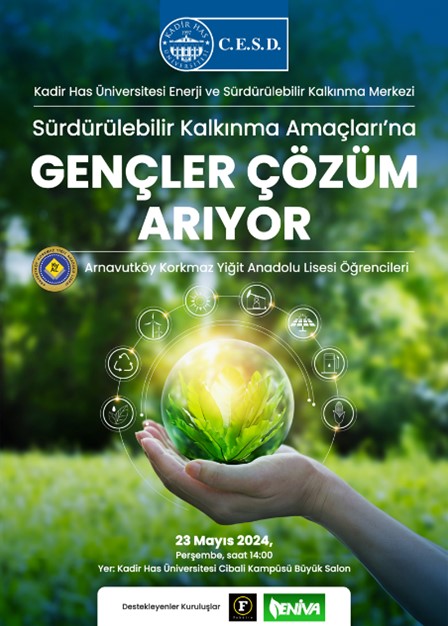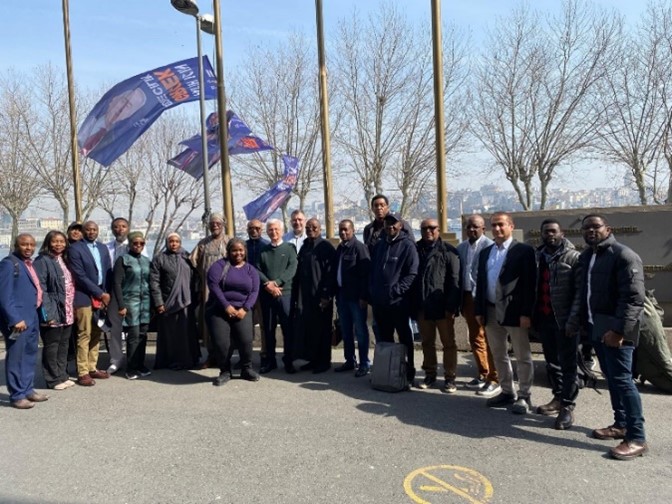 High School Students Discussed Sustainability
High School Students Discussed Sustainability
The event "Young People Seek Solutions for Sustainable Development Goals" with the participation of Korkmaz Yiğit Anatolian High School students took place on May 23, 2024, at Kadir Has University Cibali Campus. In the event, 11 groups identified a Sustainable Development Goal (SDG) and proposed suggestions for its achievement. More than 100 participants attended the event.

Presentation to the Nigerian Delegation
The “Workshop on Understanding Turkey's Energy Sector” event took place on February 28, 2024, at Kadir Has University Cibali Campus. Under the guidance of Dr. Afolabi Otitoju, the Nigerian Government’s Power Committee chairman and members, including six Senators and seven senior officials from the Nigerian Electricity Regulatory Commission, attended the meeting. Prof. Dr. Volkan Ş. Ediger presented “History and Overview of Energy in Turkey,” Prof. Dr. Ahmet Yücekaya gave a talk on “Energy Markets (Electricity and Natural Gas) in Turkey,” and Assoc. Prof. Dr. Gökhan Kirkil spoke about “Future Trends in Energy Markets in Turkey.”
